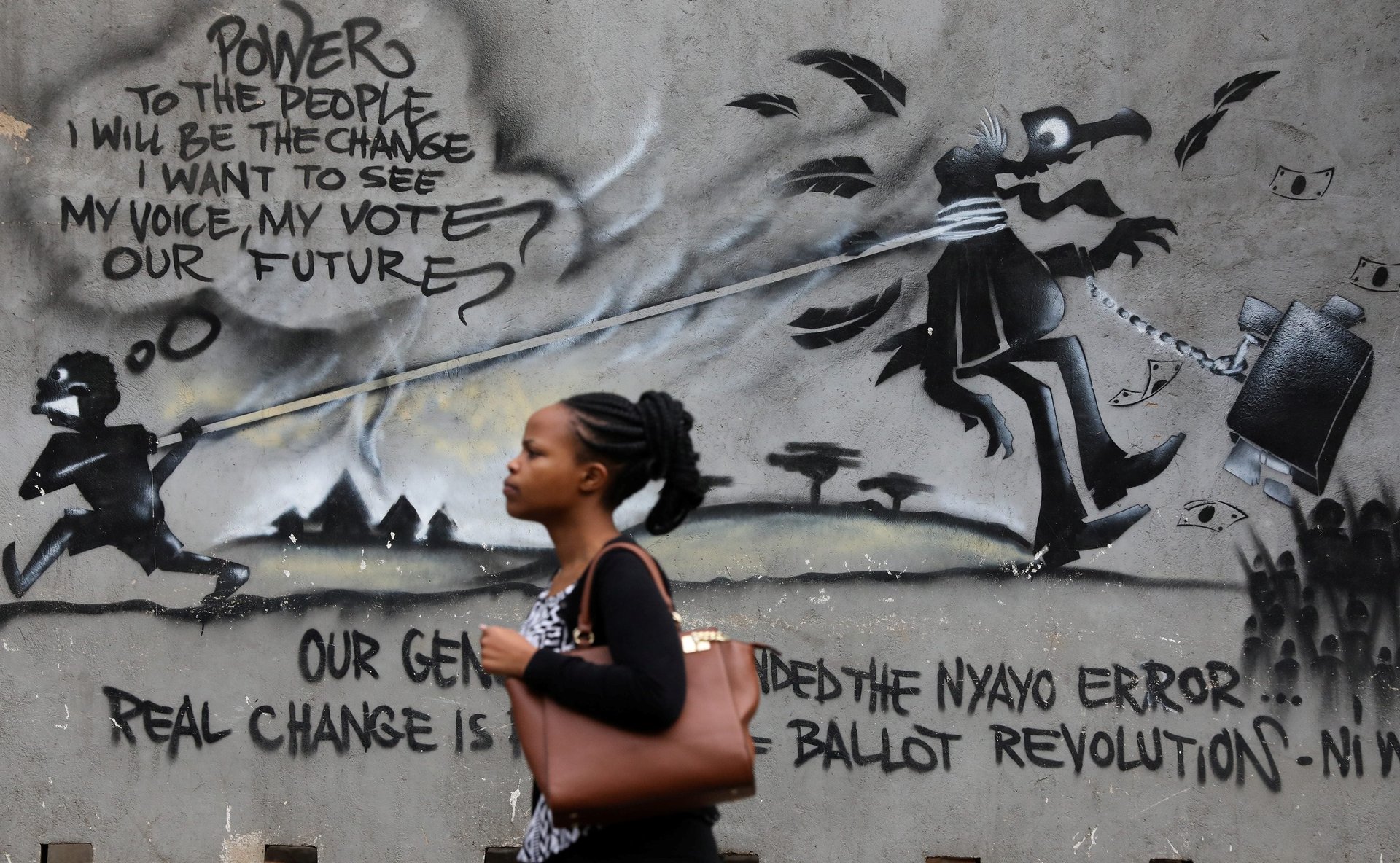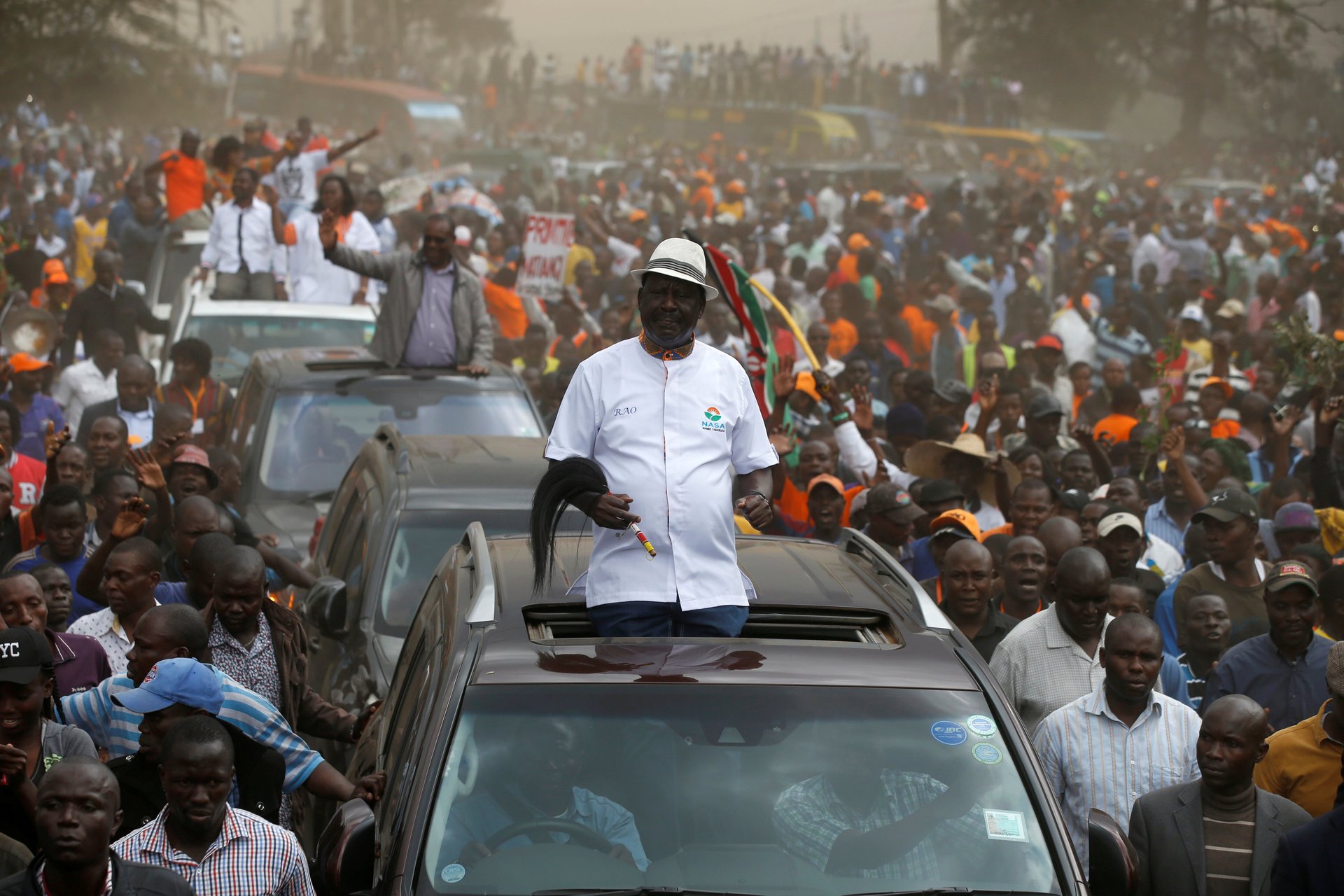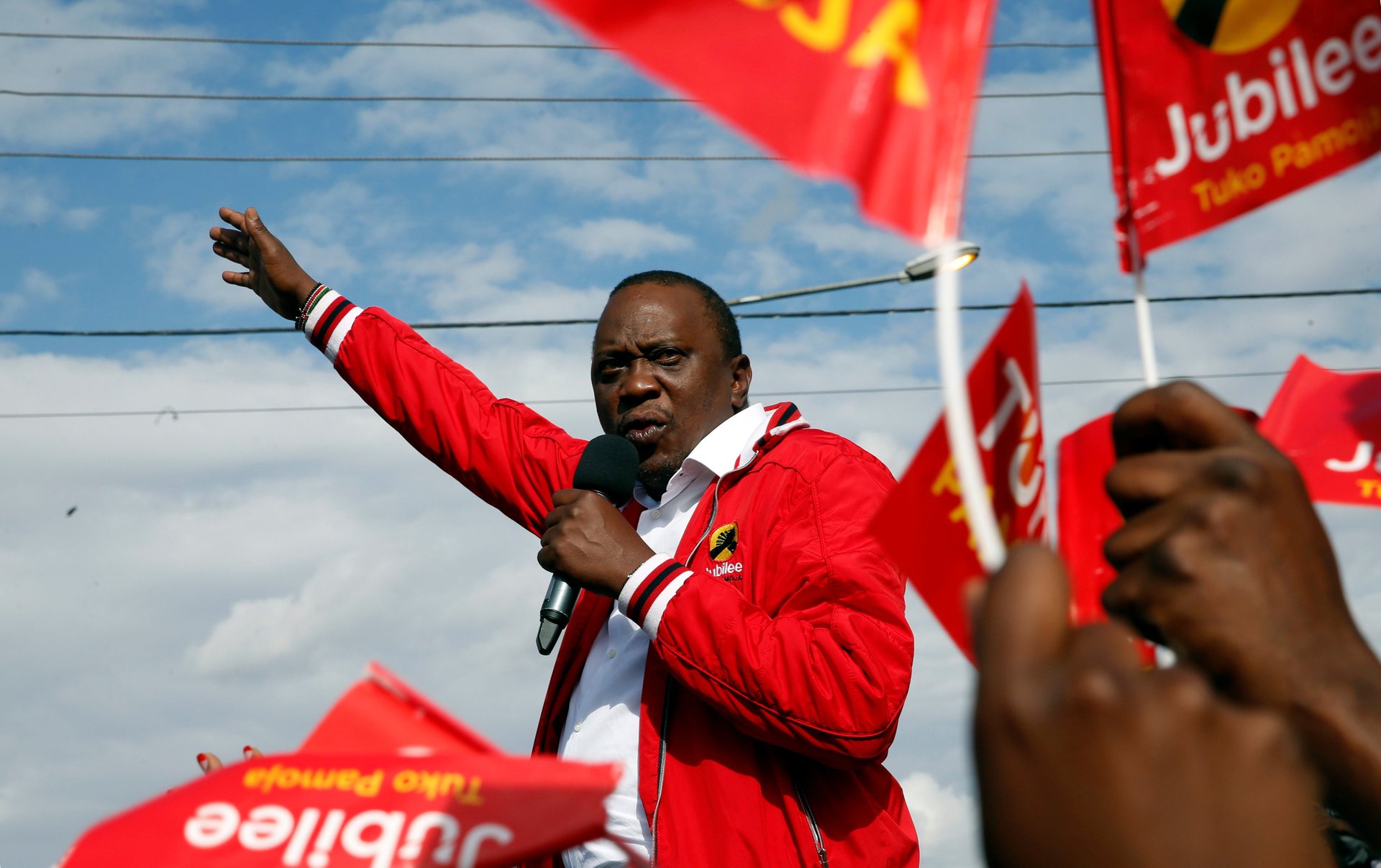Kenya’s redo presidential election is mired in confusion and voter weariness
Nairobi


Nairobi
When Kenyans go to the polls on Thursday, Oct. 26, Collins Ngila will be among the millions heeding the opposition’s call to boycott the vote.
In early October, opposition leader Raila Odinga quit the repeat presidential election saying it won’t be free and fair. On Sept. 1, the supreme court nullified the results of the Aug. 8 vote, accepting the opposition’s claim the voting system was hacked. The annulled results had put Kenyatta in the lead with a margin of 1.4 million votes. Odinga withdrew from the race after accusing the electoral commission of stonewalling meaningful reforms, and lamented the ruling Jubilee party’s passing of a controversial law that amended election laws.
“An election is not about the day of voting, it’s about the whole process,” says Ngila, 28, reiterating the words of the supreme court. Without addressing the issues raised by the opposition, this election “is to legitimize a process that is already flawed.”
On Wednesday, the supreme court failed to hear the case of three petitioners who wanted to stop the election for lack of a quorum. Another judge of the high court also ruled that the appointment of constituency election officers and their deputies were illegal, further jeopardizing the preparation for the Thursday poll.
A general mood of weariness has enveloped the country as the date of the polls come closer. While the capital city has not emptied out as like the August elections, the deepening tensions have shuttered business establishments. Fearing looting and destruction during demonstrations, shop owners in the central business district had been closing their businesses, complaining that they were incurring losses. The school year has also abruptly ended early this year, while the University of Nairobi, the country’s top institution of higher learning, was closed in early October.
For almost two months now, Kenya has had a tense post-election period marked by protests, police shootings, legal quagmires, not to mention the accusations and counter-accusations from political parties. The deepening political crisis in the east Africa nation has slowed economic growth, increased the risk of violence, and intensified a sense of resignation and frustration among citizens.
Even Wafula Chebukati, the chairman of the Independent Electoral and Boundaries Commission (IEBC) has said he wasn’t confident if the election would be credible. A few hours before his comments last week, a senior member of his team resigned and fled to the United States, citing death threats. Unknown gunmen also shot and injured the driver of the deputy chief justice Philomena Mwilu less than 48 hours before the polls open. Ezra Chiloba, the chief executive officer of the commission, who was criticized by the opposition for mishandling the election, has also gone on leave.

Election observers, who were criticized for endorsing the annulled election, have also questioned the standing of the upcoming polls. While the US-based Carter Center called for dialogue before the repeat exercise, the European Union reduced the number of its observers to focus on results transmission process. The Commonwealth nations reportedly withdrew their observers citing security fears and the withdrawal of Odinga. Observer groups like the International Crisis Group have called for the delay in the election, recommending that IEBC seek a 30-45 day extension period from the supreme court to avert a crisis.
Pat Thaker, the editorial director of middle east and Africa for the Economist Intelligence Unit says this level of uncertainty threatens the credibility of the vote, “potentially leading to an extended political crisis, accompanied by periodic violence.”
Since election day, human rights organizations found that the police used excessive force in responding to protests in opposition strongholds. At least 33 people were killed and hundreds of others injured in the capital Nairobi alone. The ensuing chaos and political standoff have also damaged the economy, with the Kenya Private Sector Alliance saying election-related losses cost the economy about 700 billion shillings ($6.7 billion). This is beside the almost $600 million that taxpayers spent to secure and manage the electoral process, making it one of the most expensive in Africa.

Some voters say they cannot vote knowing that the same mistakes might be repeated by the commission. They want to be certain Kenya will conduct a free and fair election not just have an election. Many say on social media that without this certainty they will not be voting on Thursday.
As the extended election process further polarizes the country, Ngila, who works as the general affairs secretary at the Chinese company managing newly opened Standard Gauge railway, says that Kenya needs to have a dialogue and face the reality of what happened. “We need to talk about the hatred and bitterness that people have. We don’t need an election right now,” Ngila says. “Those people who died, they don’t need an election, they need justice.”